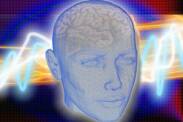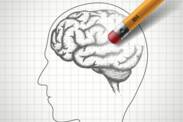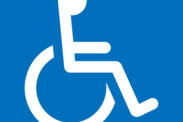Symptoms associated with the nervous system

Tremor
A tremor is described as an involuntary and rhythmic movement that affects one or more parts of the body. It affects the upper limbs, hands, fingers, head, trunk or legs.

Disorders of consciousness
Consciousness is what defines us. It is what we are able to perceive ourselves and our surroundings through. It is the manifestation of the activity of the central brain system. It is where our mental processes, our thinking, our memory take place. Sometimes conditions occur that disrupt its function and a disturbance occurs. This can be short or long term. In addition, disturbances are divided into qualitative or quantitative.

Memory disorders
It occurs in children, adults and the elderly. Memory loss can be short-term, long-term, partial or complete. It occurs after an accident, in a psychological disorder or is a symptom of an illness.

Defence
It is recognised by weakness of a part of the body, impaired mobility of a limb or one side of the body. It can be partial or complete, temporary or permanent. It affects one nerve, but in some diseases more. It is a consequence of a minor, but also a serious disease. The main principle is not to underestimate this symptom and to seek immediate professional examination when it occurs.

Tingling
Tingling often occurs in the upper or lower limbs, face, lips. It can accompany a momentary nerve compression or an acute illness, as well as a chronic problem. There are several causes.

Speech disorders
Speech is our tool of communication. It serves us in the form of words. It can be spoken as sound, but also in the form of writing. Both forms need to be able to be processed, understood and ultimately produce a response. Sometimes, however, it malfunctions. It can be the result of damage to the neurological system or even disease outside it.

Depression - depressed mood
Depression, sadness, despondency, loss of interest and mood disturbances. Emotions that have a psychological and physical impact. What is the cause? What associated difficulties can be expected?

Aura
Aura occurs in seizure disorders such as epilepsy or migraine. These are unusual sensations that do not normally occur.

Head spinning
Head spinning, vertigo, vertigo means a state of change in the perception of the position of the body in space. Spinning or swaying, unsteady posture, walking and bumping into objects are among the most common symptoms.
The nervous system is used to capture and process stimuli from the environment and also ensures the body's response and reactions to these stimuli. Through the nervous system and the system, information is moved from individual receptors to the brain where these stimuli are processed. In humans, the nervous system is divided into the central nervous system and the peripheral nervous system. The central consists of the brain and spinal cord and the peripheral consists of the individual nerves and sensory organs that provide sensory input.
Problems within the nervous system most often occur as a result of diseases or injuries that cause disturbances in either the structure or function of parts of the nervous system. These disturbances may be local, where they affect only certain parts of the body and nerve endings or parts of the brain responsible only for certain nerve transmissions, or generalised, where they affect essentially the whole of a person's functioning and perception.
Local nervous system disorders include, for example, convulsions, sensory disturbances or reduced perception of a sense, and these disorders need not yet be life-threatening, as long as they are truly local. Worse are system-wide disorders, such as disturbances of consciousness, which sometimes even lead to death. Signs and symptoms within the nervous system often affect a person's behaviour and actions and their interaction with their environment.
Symptoms associated with consciousness
Within the nervous system, definitely one of the most dangerous symptoms is a problem with consciousness. Disturbances of consciousness can arise from injury or illness, for example, intoxication, acute cerebral haemorrhage, delirium, epilepsy, stroke, Fallot's tatralogy, also heart conditions such as hypertrophic cardiomyopathy or arrhythmia, and also as a result of inadequate oxygenation of the body or inflammation of the brain.
While a short-term loss of consciousness, such as in stroke, epilepsy, heart disorders or overheating, may not be so dangerous, if a person falls unconscious for a longer period of time, there is even a risk of damage to the central nervous system. This can occur, for example, with concussion, brain abscess, tuberculous meningitis or tick-borne encephalitis. Prolonged unconsciousness is also a risk with poisoning or meningitis.
Problems with perception of stimuli
Symptoms related to the nervous system also include sensitivity disorders. These are manifested by either a decrease or an increase in perception and sensitivity to environmental stimuli. They are typical of epilepsy, diabetic neuropathy, stroke or diabetes. An interesting symptom is the aura that accompanies epileptic seizures or migraine headaches, for example, and is the perception of unreal stimuli, such as smells or patterns in front of the eyes.
Decreased perception of pain may also occur as part of problems with perception of environmental stimuli. This occurs either by a problem with the recep rms or directly with the transmission of the signal to the brain. Very often this is a symptom of diabetic neuropathy or other nerve diseases of the peripheral nervous system. Symptoms that can also cause perceptual disturbances include a tingling sensation, usually in the legs or arms. This symptom also accompanies some vein diseases, such as varicose veins.
Cognitive impairment
Cognitive functions include, for example, memory, intellect or speech, and impairments in these functions are also closely related to the neurological system. Memory impairments occur, for example, in dementia, Alzheimer's disease, Addison's disease, and memory impairment is also typical in the elderly. They are also very often troubled by problems with rational thinking. This symptom is part of the manifestations of dementia, delirium, Alzheimer's disease and also occurs with intoxication.
Speech problems are also among the manifestations within the nervous system. For example, accelerated speech is typical in hyperthyroidism, in incipient dementia and in speech disorders. Overall speech disorders occur in stuttering, autism, cerebral palsy, Alzheimer's disease, or when a tumor invades the speech center of the brain. Several life-threatening conditions also make it impossible for the person affected to speak, such as stroke or epiglottitis.
Symptoms associated with movement and musculature
Giant claudication is not always muscle related, but it does cause problems with movement. Paralysis is essentially paralysis and can be either partial, where there is a problem controlling the limbs of one half of the body, for example, or complete. Paralysis can arise from some injury, usually to the spinal cord, or in connection with diseases of the nervous system or individual limbs. It is typical in stroke, atherosclerosis, amyotrophic lateral sclerosis or cerebral palsy.
Many times, apparently unexplained dropping of objects from the hands is also related to nervous problems. This manifestation is typical in nerve inflammation, muscle problems, but also in fine motor disorders or multiple sclerosis. Common manifestations of diseases of the central nervous system, especially of the brain, include tremors, usually of the limbs and hands. It occurs in tick-borne encephalitis, hyperthyroidism, cerebral palsy and sometimes in necrosis of the liver.
Neurological symptoms also include problems in the face, specifically with the facial muscles, for example. Spasms of the facial muscles occur as a result of either magnesium deficiency or the serious disease tetanus, which is an infectious disease manifested also by deep breathing. If a person notices only a drooping corner of the mouth, which he cannot control at will, this may be a sign of oxygen deficiency, for example in the case of a stroke, or even of incipient oral cancer.
Other symptoms
Sometimes psychological and physical symptoms are linked, and a good example is psychomotor retardation. This is a symptom where there is both physical and mental disability and it is a manifestation that is present from birth. The milder form may be in Asperger's syndrome, the more severe form is in autism, for example. Mental retardation, as the condition is called, is also part of the manifestations of Down's syndrome or cerebral palsy.
Insomnia is also a neurological symptom, although this condition can also be related to other problems. For example, people with hyperthyroidism, Addison's disease, tuberculous meningitis, and during manic periods in manic-depressive psychosis, for example, sometimes have insomnia without any apparent cause. This symptom is also related to the general state of the body, sometimes simply too much stress and psychological tension can cause sleep problems.









